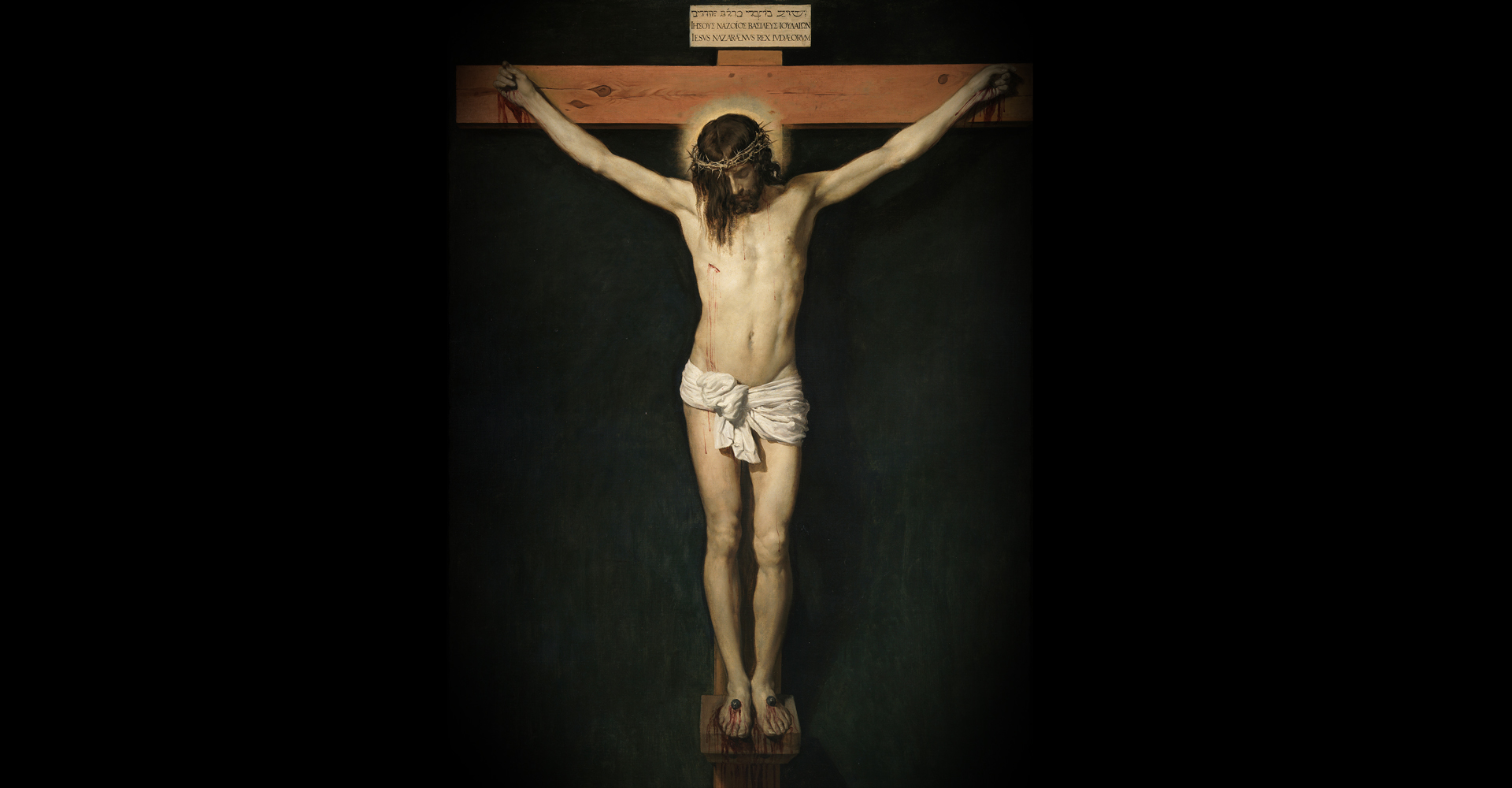Photo Credit: Image modified. Cristo crucificado, Diego-Velazquez, wikimedia commons, https://commons.wikimedia.org/wiki/File:Cristo_crucificado.jpg
By F. K. Bartels
May 9, 2013
Through the mystery of the life of Jesus Christ, humankind is given a new and definitive way of understanding itself, its purpose, goal and destiny.
Menander is a man who lived in the third and fourth centuries B.C., and is believed to have been born of a wealthy Athenian family. He studied under the philosopher Theophrastus, a pupil of Aristotle. Below is a fragment of his writing from c. 305 B.C.:
When you’re moved to find out who you are, study the graves you encounter as you pass by. Inside rest the bones and weightless dust of men once kings and tyrants, wise men, and those who took pride in their noble birth or wealth, their fame, or their beautiful bodies. Yet what good was any of that against time? All mortals come to know Hades in the end. Look toward these to know who you are.
Raised in an era of paganism, Menander was acquainted with the belief in capricious Roman and Greek gods whose traits, both admired and feared at the time, where disturbingly aligned with unfettered human passions, depravity and libertinism. He noticed, as the fragment above indicates, the inescapable reality of death, which appeared to strip great and small alike of every worldly adornment. His advice is to learn who we are by observing those who have met their inevitable end.
Today, however, we are privileged to have access to an astonishing and entirely unique event in human history, bestowing on humankind a new, in fact divine way of understanding what it means to be human. Ultimately, we no longer look to the dead to understand ourselves, nor even to our contemporaries, although much can be learned from both. We look to the Word made flesh, Jesus the Christ, who is God made man. “In reality it is only in the mystery of the Word made flesh that the mystery of man truly becomes clear” (Gaudium et Spes 22 § 1). Because Jesus Christ is the Son of God who assumed human nature, he is the definitive answer to the most pressing human questions.
“What does it mean to be human?” and “Who am I and who am I to become?” Gaze on Christ crucified, the One in Whom all good things divine and human are truly revealed.
Christ’s peace.
*****
Please consider helping to maintain this site with a donation. Even small tips help!

Deacon Frederick Bartels is a member of the Catholic clergy who serves the Church in the diocese of Pueblo. He holds an MA in Theology and Educational Ministry, and is a Catholic educator, public speaker, and evangelist who strives to infuse culture with the saving principles of the gospel. For more, visit YouTube, iTunes and Twitter.

Leave a Reply